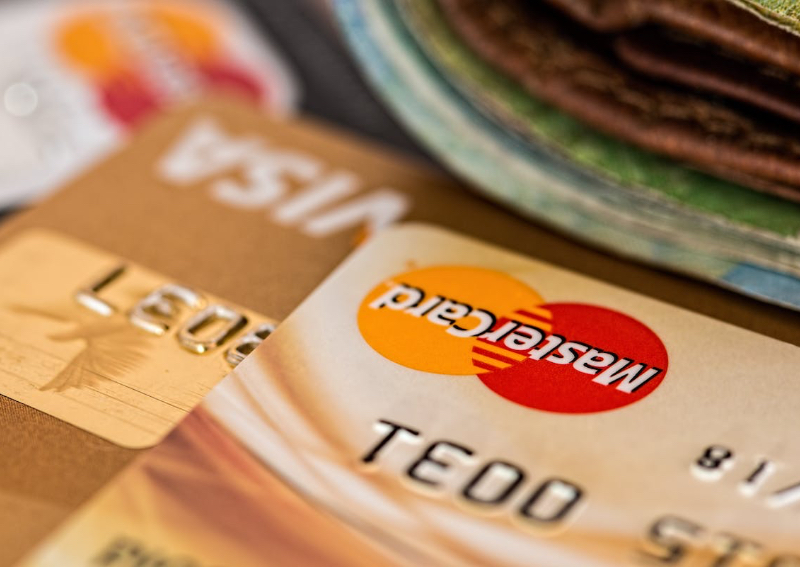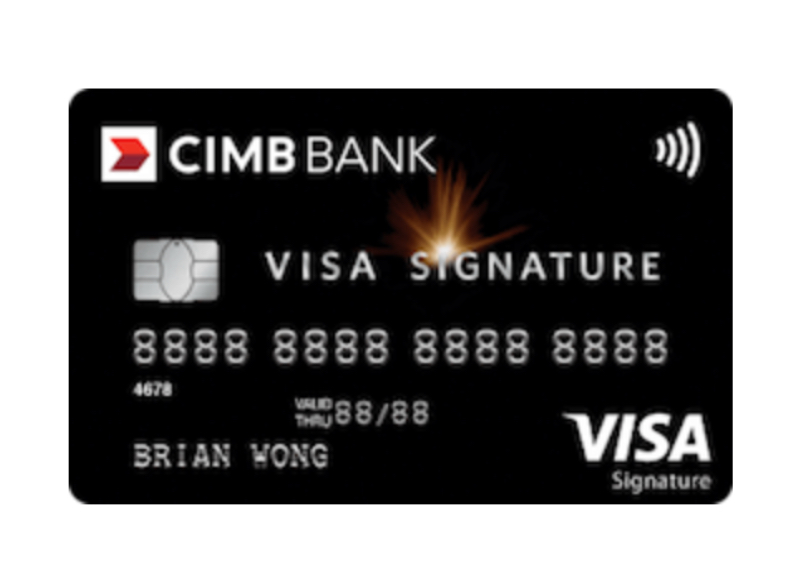Best savings accounts in Singapore with highest interest rates (2023)

So far, 2023 is shaping up to be pretty hard on our bank accounts. Between inflation and an impending recession, it looks like our wallets are going to take quite a hit this year, even with the cash payouts announced during Budget 2023.
It's times like these when saving your money is more important than ever. One easy way to do this is through a savings account. When you open a savings account with a bank, you deposit money into it and let that money earn interest. You'll enjoy higher interest rates on a savings account than you would on your normal account (called a checking account).
However, not all savings accounts are made equal. Different banks offer different interest rates and different minimum sums. So to help you out, we've compiled the best savings accounts in Singapore with the highest interest rates in 2023 for different personal and financial needs.
| Savings account | Interest rates | Best for |
| Standard Chartered Bonus Saver | Up to 7.88% (on first $100,000) | High spenders |
| UOB One | Up to 7.80% (on next $25,000 after depositing $75,000) | Freelancers & self-employes |
| OCBC 360 | EIR of up to 7.65% (on first $100,000) | Growing your savings |
| Citi Wealth First Account | Up to 7.51% (on first $50,000-$150,000) | Those with other Citibank products |
| Bank of China Smart Saver | Up to 6.70% (on first $100,000) | High earners & spenders |
| Maybank Save Up | Up to 4.30% (on first S$50,000) | Home, education, car loan users |
| DBS Multiplier | Up to 4.10% (on first $50,000 – $100,000) | Salaried workers |
| CIMB FastSaver | Up to 3.50% (no cap!) | Young adults starting their careers |
| HSBC Everyday Global Account | 1% interest + 1% cashback (capped at $300/month) | Those with other HSBC Products |
Note: The maximum interest rates given above are for regular banking customers. Many banks offer higher rates for their private clients. The maximum interest rates above only apply to a certain sum, such as the first $50,000.
| Transactions | Interest rate |
| None (base interest) | 0.05% |
| Salary credit (min. $3,000) | + 2.50% |
| Credit card spending (min. $500 or $2,000) | + 1.25% (min. $500) OR 2.00% (min. $2,000) |
| 3 x bill payments (min. $50) | + 0.33% |
| Invest in eligible unit trust (min. $30,000) | + 1.50% for 12 months |
| Buy eligible insurance (min. $12,000) | + 1.50% for 12 months |
The Standard Chartered Bonus Saver savings account currently offers the highest maximum interest rate on a savings account: 7.88 per cent p.a..
It isn't easy to get there-you'd need to fulfil these five requirements: credit your salary, spend on your credit card, pay three bills, invest, and buy insurance.
However, the Standard Chartered Bonus Saver savings account does occupy a niche: It gives you pretty high bonus interest just for spending tons of money.
Pay three bills online or via Giro and you'll get an additional 0.33 per cent interest.
Spend at least $2,000 on your SCB Bonus$aver credit or debit card and you'll already get 2.05 per cent p.a. bonus interest on your savings.
Not bad if your card's main function is to pay for your kid's tuition fees, dental checkups, condo MCST fees and what-not.
On top of that, crediting your salary will get you an additional 2.50 per cent interest. However, you have to be earning at least $3,000 per month to qualify for the bonus interest.
| Account balance | S$500 spend per month on eligible UOB Card | S$500 spend per month on eligible UOB Card + 3 Giro/PayNow debit transactions | S$500 spend per month on eligible UOB Card + credit salary via Giro/PayNow |
| First $30,000 | 0.65% | 2.50% | 3.85% |
| Next $30,000 | 0.65% | 3.00% | 3.90% |
| Next $15,000 | 0.65% | 4.00% | 4.85% |
| Next $25,000 | 0.05% | 7.80% | |
| Above $100,000 | 0.05% | ||
The easy-to-use UOB One account currently offers one of the highest maximum interest rates out there, at 7.8 per cent p.a.. You'll get to enjoy this rate on your next $25,000 after depositing $75,000 once you fulfil these requirements:

The eligible cards are:
Don't have a fixed monthly salary? You can still get up to four per cent p.a. with the UOB one account if you pay three bills by Giro. This is great for those without a regular paycheck such as freelancers, retirees or homemakers. If you go for this option, the interest rate rises with every additional $30,000 or $15,000 in your UOB One account, up to $75,000.
| Transactions | Interest rate (first $75,000) | Interest rate (next $25,000) |
| None (base interest) | 0.05% | 0.05% |
| Salary credit (min. $1,800) | + 2.00% | + 4.00% |
| Increase avg. monthly balance (min. $500) | + 1.20% | + 2.40% |
| Spend (min. $500 on OCBC 365 card) | + 0.60% | |
| Insure in selected products (min $2,000) | +1.20% | + 2.40% |
| Invest in selected products (min. $20,000) | + 1.20 % | + 2.40% |
| Maintain average daily balance of min. $200,000 | 2.40% | |
The OCBC 360 savings account starts at a base interest of 0.05 per cent p.a., and gives you varying bonus rates for crediting your salary, spending, growing your balance, insuring and investing. If you fulfil several of these requirements, this is what your maximum effective interest rate (EIR) will be on your first $100,000:
The OCBC 360 is more complicated than the UOB One, but also more flexible in that there is no one mandatory requirement. This account makes sense if you're earning just enough to meet the $1,800 minimum, and don't want to jump through any further hoops. You'll earn a bonus two per cent for not doing much else than crediting your salary to the OCBC 360 account.
You get a bonus 1.2 per cent every month that your account balance increases by $500 or more, so that might encourage you to save more.
| Citibanking, Citi Priority | Citigold | Citigold Private Client | |
| Deposit amount | First $50,000 | First $100,000 | First $150,000 |
| Base interest rate | 0.01% p.a. | ||
| Spend (min. $250/month on Citibank Debit Mastercard) | 1.5% p.a. | ||
| Invest (min. $50,000/month) | 1.5% p.a. | ||
| Insure (min. $50,000/month) | 1.5% p.a. | ||
| Borrow (min. $500,000 home loan) | 1.5% p.a. | ||
| Save (min. $3,000/month) | 1.5% p.a. | ||
| TOTAL | 7.51% p.a. | ||
The Citi Wealth First Account has a simple mechanic for calculating its total interest rate: base interest + bonus interest.
Its base interest starts at 0.01 per cent for everyone, whether you're a Citibanking, Citi Priority, Citigold, or Citigold Private Client customer. That's the lowest base interest rate out of all the savings accounts on this list.
Next, beef up that measly 0.01 per cent up with bonus interest rates. You get different bonus rates depending on which of the following categories you fulfil:
If you fulfil all of the transaction categories above, the maximum interest rate you can get with the Citi Wealth First Account is a generous 7.51 per cent. That's one of the highest rates among the savings accounts this month. Plus, it applies to the first $50,000 to $150,000 in your account, and not just the first $25,000 after the $100,000 mark or something.
The only advantage to starting a Citigold or Citigold Private Client banking relationship is that the bonus interest rates can apply to a larger sum of money. For Citibanking or Citi Priority customers, bonus interest rates are applied to only the first $50,000. This increases to $100,000 for Citigold and $150,000 for Citigold Private Client.
However, you'll need to maintain $250,000 in your account for Citigold, and $1,500,000 for Citigold Private Client. If you fall below these thresholds, the bonus 7.5 per cent will only apply to the first $50,000 just like for everyone else.
| Transactions | Interest rate |
| None (base interest) | 0.1% |
| Insurance plan spending | +2.40% p.a. for 12 consecutive months |
| Salary credit | + 1.90% (min. $2,000) OR 2.50% (min. $6,000) |
| Credit card spending | + 0.50% (min. $500) OR 0.80% (min. $1,500) |
| 3x bill payments of at least S$30 each (GIRO or internet/mobile banking) | +0.9% p.a.The Bank of China SmartSaver account is a decent good choice for high earners. |
They offer probably the highest interest rates in Singapore for those who take home a monthly salary of at least $6,000.
You get a cool 2.6 per cent per cent p.a. just for opening the account and crediting your salary to it.
If raking up a credit card bill of at least $1,500 is no problem for you, you'll get an additional 0.9 per cent bonus interest.
The Bank of China SmartSaver account also awards a wealth bonus of 2.4 per cent per annum for 12 consecutive months.
However, to qualify, you'll have to put down a pretty hefty sum on their insurance products.
We're talking a minimum of $12,000 in annual premiums with a 10-year premium term.
| Interest rates (applicable from 1 Jun 2023) | |||
| Transactions | First S$50,000 | Next S$25,000 | Maximum Effective Interest Rate |
| None (base interest) | Up to 0.25% p.a. | Up to 0.25% p.a. | |
| 1 x transaction | + 0.30% p.a. | + 1.00% p.a. | 0.53% p.a. |
| 2 x transactions | + 1.00% p.a. | + 1.50% p.a. | 1.17% p.a. |
| 3 x transactions | + 2.75% p.a. | + 3.75% p.a. | 3.08% p.a. |
The Maybank Save Up Programme lets you choose from nine different Maybank products/services to get bonus interest:
While the Maybank Save Up Programme starts with a higher base interest rate than most other savings accounts, the maximum bonus interest rates aren't as competitive.
Assuming you hit three transactions and start with a bonus interest rate of 0.25 per cent, you'll get three per cent. For comparison, the OCBC 360 account will give you 4.65 per cent p.a. for hitting the three categories of crediting your salary, saving, and spending on your credit card.
| Total monthly transactions | Income + 1 category | Income + 2 categories | Income + 3 categories |
| First $50,000 | First $100,000 | First $100,000 | |
| <$2,000 | 0.05% | 0.05% | 0.05% |
| $2,000 to $2,500 | 0.90% | 1.70% | 2.00% |
| $2,500 to $5,000 | 1.50% | 1.80% | 2.20% |
| $5,000 to $15,000 | 1.80% | 2.10% | 2.40% |
| $15,000 to $30,000 | 1.90% | 2.20% | 2.50% |
| >$30,000 | 2.20% | 3.00% | 4.10% |
The rates in the table above apply to you if you credit your salary/dividends/SGFinDex to any DBS or POSB account (yes, it doesn't need to be your DBS Multiplier account!). Additionally, you also need to have $2,000 worth of transactions in one or more of the following categories:
The more categories you hit, the higher bonus interest rates you get.

What if you don't have any DBS credit card, insurance, or investments? Unfortunately, the bonus interest rates aren't as high. And while you have the option to not credit your salary to a DBS/POSB account, DBS will still require you to at least use PayLah!.
The good news is that there isn't a minimum amount for PayLah! spend. Just use it to pay for anything, even if it's a $1+ cup of kopi at your local coffeeshop. Easy!
| Total monthly transactions | PayLah! spend only (29 years old and below) | Income + PayLah! spend |
| First $10,000 | ||
| >$0 to $500 | 0.40% p.a. | 0.05% |
| $500 and above | 0.55% p.a. | |
The DBS Multiplier account makes it easy to earn bonus interest with its zero minimum spend transaction categories and the flexibility to credit your salary into any DBS account, not necessarily the DBS Multiplier.
However, DBS Multiplier account interest rates start pretty low. If you don't credit your salary to a DBS/POSB account, your interest rates max out at 0.40 per cent p.a..
In fact, DBS Multiplier interest rates are nowhere near even the one per cent p.a. mark unless Option one applies to you, i.e. you have other DBS/POSB transactions. Comparatively, CIMB FastSaver's interest rates start at 1.50 per cent p.a. for just opening the account and depositing a minimum of $1,000.
The CIMB FastSaver account is the easiest savings account to earn money with this July. They're running a promotion till the end of the month: Sign up by July 31, 2023, and earn 3.5 per cent p.a. interest on your cash for the next six months, till Dec 31, 2023. The only requirement is that you are a new customer-no credit cards spend or minimum investments are needed to hit that 3.5 per cent!
Those with an existing CIMB FastSaver account enjoy the following rates. Again, there are no requirements to hit a certain credit card spend or buy insurance to enjoy these rates:
| Account Balance | Interest rates (p.a.) |
| First $25,000 | 1.50% |
| Next $25,000 | 2.50% |
| Next $25,000 | 3.50% |
| Above $75,000 | 0.80% |
Admittedly, 3.50 per cent p.a. interest is not a lot. But we have to give the CIMB FastSaver account credit where it's due-it's the least headache-inducing of all the savings accounts to have. Their mechanic is as simple as it gets: Deposit money, earn interest.
The only requirement is to maintain at least $1,000 in your account for you to earn the advertised interest rates. You can do the least with CIMB FastSaver's account and still reap the benefits of its rather generous interest rates.
This account is also perfect for most young adults starting out their career, because of the very low "minimum" balance of $1,000 and no fall below fee.

What if you want to open a savings account, but don't want to do anything but credit money into it? The best zero-effort contender s is the POSB SAYE (Save As You Earn) account.
You need to set up a standing order to credit a fixed amount every month (anything from $50 to $3,000) into your SAYE account, then resist the urge to touch it for two years. As a reward for your restraint, you earn 3.5 per cent p.a.
Note that it's a whole lot less liquid than any other savings account, so for the love of God, please don't put your emergency stash in here.
The HSBC Everyday Global Account is a multi-currency account that also doubles up as a savings account…masquerading as an interest/cashback-earning hybrid. Let me explain.
Unlike the other savings accounts on this list, the HSBC Everyday Global Account doesn't stack bonus interest the more you spend/save/borrow/invest/insure.
Instead, the account works hand in hand with the HSBC Everyday+ Rewards Programme. You have to qualify for the Everyday+ Rewards Programme in order to get one per cent bonus interest and one per cent cashback (capped at $300/month).
To qualify for the HSBC Everyday+ Rewards Programme, you need to:
On top of the interest and cashback, HSBC will give you one-time cash bonuses of up to S$1,620 (for Personal banking customers) or S$$10,470 (for Premier banking cusotmers) when you meet certain conditions. These include signing up for an HSBC credit card, investing, and insuring with HSBC.
ALSO READ: Which travel credit card gives you the most travel perks?
This article was first published in MoneySmart.